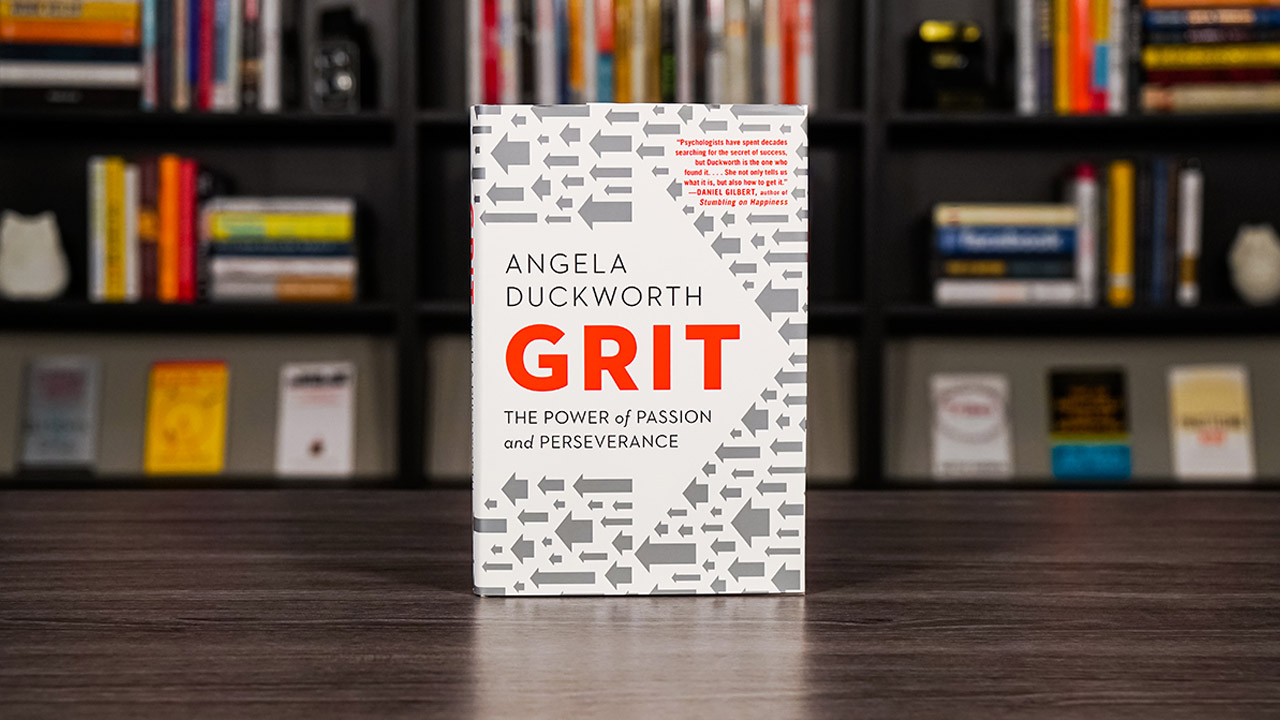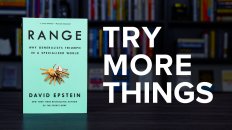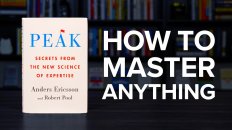Why do some people succeed while others fall short of their full potential? The answer to this simple question has broad implications within sports, business, and life. Not only can it help us improve our odds for success, but it can also help us recruit better team members, identify better business partners, and help others develop and grow.
So, to answer this question, let’s explore three of the most valuable insights from Grit by Angela Duckworth.
1. Grit Predicts Success Better Than Talent Or Luck
When seeking to predict the potential for success in people, we often focus on assessing natural talent. We have a bias for valuing innate abilities, so it’s tempting to assume that such abilities predict future success. However, simply having natural talent isn’t the same thing as being able to apply that talent productively. As a result, innate talent alone is not an effective way to predict future success.
Beyond talent, other theories that were considered include assessing historical achievements, measuring recent performance, and even accounting for blind luck. However, these too fell short in their ability to make accurate predictions.
Instead, Angela Duckworth discovered that a better indicator was Grit: a unique blend of passion and perseverance. Passion is measured by the consistency of one’s goals over an extended period of time. Perseverance is about putting in effort, overcoming challenges, and completing what has been started.
The Grit Scale, a simple questionnaire to measure grit, turned out to be a strong predictor of success in a variety of situations, including West Point’s 7-week bootcamp, retention of salespeople over time, higher GPAs when controlling for SAT scores, the completion of graduate degrees, and even advancement in a spelling bee for kids.
Interestingly, talent was not a predictor of grit. While it’s true that people have innate abilities, that alone doesn’t mean they are effective in productively using those talents. Grit relates to how people use and develop their skills.
2. When It Comes To Achievement, Effort Counts Twice
What we achieve in any given area of life depends on two factors: talent and effort. Talent relates to how fast we can improve a specific skill based on innate strengths. Effort relates to the work we put in to develop and apply our abilities.
It’s interesting to note that effort counts twice, often at the very same time. Not only does it allow us to apply our abilities towards productive output, but in doing so, we also have the opportunity to develop and improve our overall skills. Consider the implications of the following two equations from the book:
- Talent x effort = skill
- Skill x effort = achievement
Developing meaningful expertise takes time. Yet, when we invest the effort to improve, we can simultaneously pursue significant achievements. Innate ability does not have this advantage. It doesn’t produce any value until we invest effort.
It’s worth noting that there are other factors at play. For example, your opportunities for improvement can also play a key role. Having access to a great coach, mentor, or teacher can help to accelerate skill development. Likewise, luck can also play a role.
However, those who overestimate talent’s value tend to fixate on the extreme limits of their potential in a given area. As a result, they may be tempted to avoid investing in skills for which they have less natural talent, even though most of us aren’t even close to the outer bounds of our abilities and are unlikely to reach them.
“…the human individual lives usually far within his limits; he possesses powers of various sorts which he habitually fails to use.”
William James
The critical insight here is that talent is of little practical value without effort. Moreover, effort is the key to developing and benefiting from our abilities. As a result, the power of grit to produce consistent effort plays a critical role in our long-term success.
3. The Four Psychological Assets Of Grit Paragons
Grit develops as we begin to shape our life philosophy, learn to recover from setbacks, and clarify the high-level goals worthy of our persistence. It isn’t built on an unflinching desire to accomplish any random goal. Instead, it’s shaped by a deep understanding of the things that are deserving of our attention and tenacity.
Here are four psychological assets that mature paragons of grit have in common:
- First comes interest. Passion begins with an intrinsic enjoyment of what you do. So, while some aspects may be more enjoyable than others, it’s important that you’re captivated by the endeavor as a whole.
- Next comes the capacity to practice. One key form of perseverance is the daily discipline of investing effort to improve. So, as interest develops, it’s critical to devote yourself to deliberate practice that leads towards mastery.
- Third is purpose. Passion is driven by doing work that matters. It’s difficult to sustain effort without finding purpose in your work. It’s ideal to pursue work that is both personally rewarding and connected to the well-being of others.
- Fourth is hope. Hope defines and enhances the other three elements, and it helps us keep going even when things inevitably become very difficult.
Fortunately, it’s possible to develop all four assets. We can learn to discover, develop, and deepen our interests. We can acquire the habit of disciplined practice. We can cultivate a sense of purpose and meaning. And finally, we can teach ourselves to hope.
Three Potential Misconceptions Regarding Grit
In discussing the book with others over the years and looking back on my first impression of the content, it’s clear that there is room for misunderstanding. So, let’s explore a few potential misconceptions regarding the concept of grit.
Misconception #1 – People with grit complete everything that they start.
It’s very easy to make the mistake of assuming Grit is advocating for a “never quit” or “never give up” mentality. Much of the advice appears to suggest that success is a result of blind perseverance and tenacity. However, this interpretation fails to appreciate the full context of the message.
Grit is a result of achieving clarity around the high-level goals that are worthy of your persistence. It’s about identifying something you care about so much that you’re willing to stay loyal to it over the long term. It’s not about blind commitment to random goals.
Gritty people quit low-level or non-critical things all the time. However, if something is critical to their deeper purpose in life, they’re driven to persevere and see it through.
Misconception #2 – Natural talent isn’t real, so we can just ignore it.
While perceptions of talent are ineffective for predicting future success, innate abilities still exist. Some people can indeed learn certain skills faster than others due to natural strengths, previous life experiences, or even physical advantages.
However, natural ability is not the all-important factor that many people make it out to be. In fact, it’s the consistent and effortful action associated with grit that is far more predictive of success. Talent can help, but it is not as essential as effort.
Misconception #3 – We should aim to identify our passion early in life.
It’s a mistake to force yourself or others to rush the process of developing grit. While you can do things to foster the four assets covered earlier, it’s critical to note that most paragons of grit spend years exploring several interests. Often the area they eventually settle on wasn’t seen as a clear winner on first discovery.
With this in mind, start by sowing the seeds of interest. Don’t rush the process. Focus on developing practical experience and see where that leads. The goal is to slowly clarify a clear compass that guides the purpose of your life.
Beyond The Grit Book Summary

Are you ready to learn more about the power of passion and perseverance? It’s time to pick up a copy of Grit by Angela Duckworth. It covers many tips, insights, and advice that simply cannot be covered in this short format.
Grit is available from Amazon and Apple Books.
Are you looking for another great book? Consider checking out the best productivity books, the best self-help books, or the 50 best business books of all time.
You can also subscribe to The Rick Kettner YouTube Channel or The Rick Kettner Podcast to get updates about future book summaries and reading lists.
Do You Have A Question Or Comment?
Please visit the Grit book summary video on YouTube to share your thoughts in the comment section.


